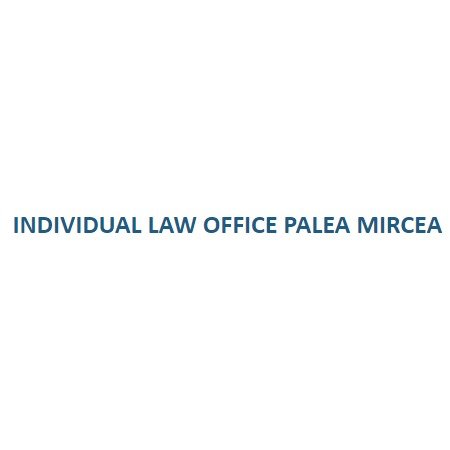Best Restructuring & Insolvency Lawyers in Sibiu
Share your needs with us, get contacted by law firms.
Free. Takes 2 min.
List of the best lawyers in Sibiu, Romania
About Restructuring & Insolvency Law in Sibiu, Romania
Restructuring and insolvency law in Sibiu, Romania, governs the processes by which individuals or businesses facing financial difficulties can reorganize their operations or resolve debts. The legal framework aims to balance the interests of debtors, creditors, and other stakeholders, providing mechanisms for both the recovery of businesses and the fair distribution of assets in the event of bankruptcy. In Sibiu, as in the rest of Romania, these legal procedures are conducted in accordance with the national insolvency laws, under the supervision of specialized insolvency courts and practitioners.
Why You May Need a Lawyer
A lawyer experienced in restructuring and insolvency can be crucial in various situations. These include:
- If your business is unable to meet its financial obligations and you need advice on debt restructuring or entering insolvency proceedings.
- If you are a creditor seeking to recover debts from an insolvent debtor.
- If you are involved in negotiations with banks, suppliers, or stakeholders to prevent bankruptcy.
- If there are allegations of fraudulent activities or mismanagement during insolvency proceedings.
- If you need guidance on preserving personal assets when facing business insolvency.
- If you want to purchase assets from an insolvent company's estate.
Legal guidance is essential to ensure compliance with the complex legal requirements, protect your rights, and achieve the best possible outcome whether you are a debtor, creditor, or third party.
Local Laws Overview
Restructuring and insolvency in Sibiu are primarily governed by Romanian Law No. 85/2014 regarding insolvency prevention and insolvency proceedings. Key aspects of the law include:
- Insolvency Definition: The law defines insolvency as a state in which a debtor's assets are insufficient to cover outstanding debts and obligations that are due.
- Preventive Measures: The law allows for preventive proceedings, such as concordat preventiv and ad-hoc mandates, aimed at avoiding insolvency through restructuring agreements between debtors and creditors.
- Bankruptcy Proceedings: If restructuring is not feasible, formal insolvency (bankruptcy) proceedings can be initiated, resulting in the reorganization or liquidation of the debtor's assets under court supervision.
- Appointed Administrators: Insolvency administrators or liquidators are appointed to manage the estate, often working to maximize value for creditors.
- Creditor Rights: Creditors must register their claims within fixed deadlines and can participate in key decisions during the proceedings.
- Court Jurisdiction: Insolvency procedures are handled by designated courts, such as the Sibiu Tribunal for cases in the Sibiu jurisdiction.
Frequently Asked Questions
What is the difference between restructuring and insolvency in Romania?
Restructuring refers to measures taken to reorganize a company’s debts and operations to avoid insolvency or bankruptcy. Insolvency is a legal process for businesses or individuals unable to pay their debts, possibly leading to reorganization or liquidation.
Who can file for insolvency in Sibiu, Romania?
Both debtors and creditors have the right to file for insolvency at the appropriate court in Sibiu if the debtor is demonstrably unable to cover their due obligations.
What happens to the assets of an insolvent company?
An appointed insolvency administrator manages the debtor’s assets. These are either reorganized for continued business operations or liquidated to repay creditors according to the legal priorities.
What is a concordat preventiv?
A concordat preventiv is an agreement between the debtor and its creditors, supervised by the court, aiming to restructure debts and avoid insolvency.
How long do insolvency proceedings typically last?
The duration can vary widely, but insolvency cases in Romania can last from several months to several years depending on complexity, size of the estate, and the number of claims involved.
Can individuals declare personal insolvency in Romania?
Personal insolvency is possible, but it is governed by separate legislation and is more limited in scope than commercial insolvency. The procedures for individuals are more restrictive and less commonly used.
How are creditors paid during insolvency?
Creditors are paid according to a legally established priority order. Secured creditors usually have preference, followed by unsecured creditors and other classes as detailed in insolvency law.
How can a creditor recover debt during bankruptcy proceedings?
Creditors must register their claims with the appointed insolvency administrator within the statutory deadline. They will then participate in the distribution of available assets.
Can business operations continue during insolvency?
In certain cases, the company may continue its operations under the supervision of the insolvency administrator, especially if reorganization is possible and in the best interest of creditors.
What are the risks of not complying with insolvency laws?
Failing to comply with insolvency laws can result in personal liability for company directors, penalties, disqualification from business management, or even criminal charges in cases of fraud.
Additional Resources
If you need further information or assistance, the following resources may be helpful:
- Sibiu Tribunal - Commercial Section: The specialized court handling insolvency proceedings in Sibiu.
- National Union of Insolvency Practitioners of Romania (UNPIR): Organizes and supervises insolvency professionals, including administrators and liquidators.
- Romanian Ministry of Justice: Provides information and regulatory oversight regarding insolvency laws and proceedings.
- Local Chamber of Commerce and Industry: Offers guidance for businesses and entrepreneurs regarding restructuring options.
- Bar Association of Sibiu: Connects individuals and businesses with qualified lawyers specializing in insolvency law.
Next Steps
If you or your business are facing financial difficulties or are involved in an insolvency case in Sibiu, the following steps are recommended:
- Gather all relevant financial documents, contracts, and correspondence related to your case.
- Consider reaching out to a local lawyer specializing in restructuring and insolvency law for an initial consultation. They can assess your situation and explain your legal options.
- If you are a creditor, promptly prepare and file your official claim with the relevant insolvency administrator to protect your rights.
- Stay informed about legal deadlines and requirements to avoid losing rights or incurring penalties.
- Take advantage of local resources, such as the Sibiu Bar Association or Chamber of Commerce, to obtain further advice or referrals to professionals.
Early legal intervention is key to maximizing your chances of a successful restructuring or to ensure your interests are protected in insolvency proceedings. Do not hesitate to seek professional advice tailored to your specific circumstances.
Lawzana helps you find the best lawyers and law firms in Sibiu through a curated and pre-screened list of qualified legal professionals. Our platform offers rankings and detailed profiles of attorneys and law firms, allowing you to compare based on practice areas, including Restructuring & Insolvency, experience, and client feedback.
Each profile includes a description of the firm's areas of practice, client reviews, team members and partners, year of establishment, spoken languages, office locations, contact information, social media presence, and any published articles or resources. Most firms on our platform speak English and are experienced in both local and international legal matters.
Get a quote from top-rated law firms in Sibiu, Romania — quickly, securely, and without unnecessary hassle.
Disclaimer:
The information provided on this page is for general informational purposes only and does not constitute legal advice. While we strive to ensure the accuracy and relevance of the content, legal information may change over time, and interpretations of the law can vary. You should always consult with a qualified legal professional for advice specific to your situation.
We disclaim all liability for actions taken or not taken based on the content of this page. If you believe any information is incorrect or outdated, please contact us, and we will review and update it where appropriate.
















